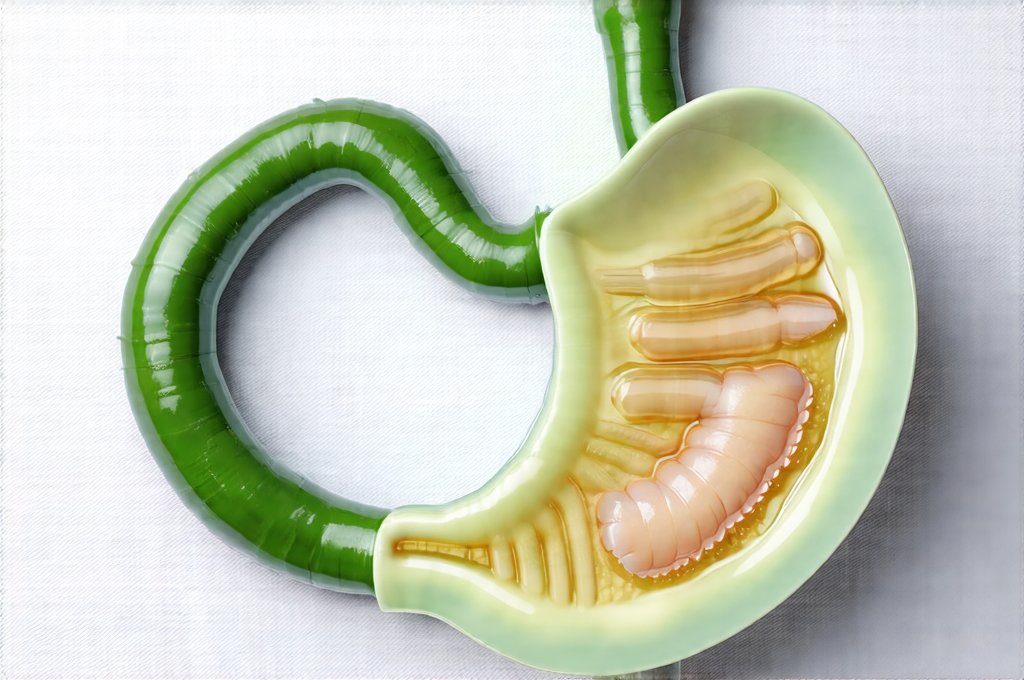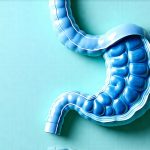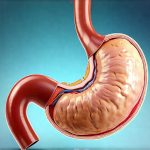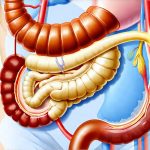Gastric emptying, the process by which food moves from your stomach into your small intestine, is a crucial part of digestion. When this process happens too quickly, it can lead to issues like dumping syndrome; however, when it’s too slow, it’s known as gastroparesis and can cause a range of uncomfortable and even debilitating symptoms. Identifying whether your stomach empties at an appropriate rate isn’t always straightforward, as symptoms can mimic other conditions. This article will explore the ways to assess potential slow gastric emptying, focusing on recognizing signs, understanding diagnostic methods, and what steps you might consider if you suspect an issue. It’s important to remember that self-diagnosis is never recommended; this information should empower you to have informed conversations with your healthcare provider.
The speed at which your stomach empties varies depending on the composition of the meal – fats empty slower than carbohydrates, for example – and individual factors like age and overall health. A healthy gastric emptying rate generally takes between two to four hours. However, persistent symptoms suggesting delayed emptying necessitate investigation. Ignoring these signals can lead to chronic discomfort and potentially impact your quality of life. This article aims to provide a comprehensive overview of how you might begin to understand if slow stomach emptying could be contributing to your health concerns, and what avenues are available for further evaluation and management. If you’re looking for ways to generally support digestion, consider simple ways to upgrade your digestive routine.
Recognizing the Signs of Delayed Gastric Emptying
Identifying delayed gastric emptying often begins with recognizing specific symptoms. These aren’t always obvious or consistent, making diagnosis challenging. The hallmark signs typically revolve around digestive discomfort but can extend beyond that. Common indicators include: – Nausea, particularly after meals – Vomiting undigested food several hours after eating – A feeling of fullness quickly while eating (early satiety) – Bloating and abdominal pain – Heartburn – Lack of appetite due to persistent nausea or fullness These symptoms aren’t exclusive to delayed gastric emptying; they can occur in other gastrointestinal disorders. The key difference often lies in the timing and persistence of these issues, specifically their close relationship with eating. If you consistently experience these symptoms several hours after a meal, even a relatively small one, it’s worth exploring further. It is important to understand if abdominal bloating is related to water retention versus other causes.
It’s crucial to differentiate between occasional digestive upset and persistent problems suggesting delayed emptying. Everyone experiences indigestion from time to time. However, if you find yourself consistently avoiding food due to nausea or discomfort, or if your daily activities are impacted by these symptoms, seeking medical evaluation is essential. Often, keeping a detailed food diary alongside symptom tracking can provide valuable information for both you and your doctor. Note what you eat, when you eat it, and the specific symptoms you experience afterward, along with their intensity and duration. This record will be incredibly helpful during consultations.
Delayed gastric emptying isn’t always caused by a specific underlying condition; sometimes it’s idiopathic (meaning no identifiable cause). However, several factors can contribute to it, including diabetes, certain medications (like opioids and anticholinergics), nerve damage (neuropathy), post-surgical complications, and neurological disorders like Parkinson’s disease. Understanding potential contributing factors can help guide diagnostic efforts. It’s vital to share your complete medical history with your healthcare provider. If you suspect your reflux is playing a role in digestive discomfort, understanding your stomach may provide answers.
Diagnostic Tests for Assessing Gastric Emptying
Once a doctor suspects delayed gastric emptying based on your symptoms and medical history, they will likely recommend diagnostic tests to confirm the diagnosis and rule out other potential causes. These tests aim to measure how quickly food empties from your stomach. The most common and reliable test is called a gastric emptying study (GES), also known as a stomach emptying scan. This involves consuming a meal containing radioactive material, which allows doctors to track its progress using a special camera.
Here’s a typical GES process: 1. You’ll eat a standardized breakfast containing about 300 calories and mixed with a small amount of radioactive tracer (usually eggs or oatmeal). 2. The tracer is perfectly safe, and you won’t feel it. 3. You’ll then be monitored for several hours – typically up to four – while lying down. A gamma camera detects the radiation emitted from the stomach and small intestine, providing information about how quickly the food is moving through your digestive system. 4. The results are compared to normal values to determine if gastric emptying is delayed. It’s important to note that GES can be affected by factors like medication use and underlying medical conditions. Your doctor will consider these factors when interpreting the results.
Beyond the GES, other tests may be used to assess overall digestive function or rule out alternative diagnoses. These include: – Endoscopy: A procedure where a thin, flexible tube with a camera is inserted into your esophagus and stomach to visualize any abnormalities. – Wireless capsule endoscopy: A small camera that you swallow travels through your digestive tract, sending images back to a recorder. – Blood tests: To check for underlying conditions like diabetes or thyroid problems. – Stool tests: To rule out infections or malabsorption issues. If you experience gas alongside these symptoms, it’s worth investigating if your gas is a sign of something more serious.
Managing Potential Slow Stomach Emptying – What Next?
If diagnostic testing confirms delayed gastric emptying, the next step is developing a management plan. The approach will depend on the severity of your symptoms and any underlying cause. There’s no one-size-fits-all solution, and treatment often involves a combination of lifestyle modifications, dietary adjustments, and potentially medication. Lifestyle changes are frequently the first line of defense. These include: – Eating smaller, more frequent meals throughout the day instead of large ones. – Avoiding high-fat foods, as they empty slower from the stomach. – Increasing fiber intake gradually to promote digestive regularity (but avoid excessive fiber if it worsens bloating). – Staying well hydrated by drinking plenty of fluids. – Managing stress through techniques like yoga or meditation, as stress can exacerbate digestive symptoms.
Dietary adjustments are often crucial. A registered dietitian specializing in gastrointestinal disorders can help you create a personalized meal plan tailored to your needs and tolerances. They may recommend limiting carbonated beverages, alcohol, and caffeine, which can irritate the stomach. Prokinetic medications, prescribed by your doctor, can help speed up gastric emptying by stimulating muscle contractions in the digestive tract. However, these medications have potential side effects, so their use must be carefully considered. If you accidentally consume a trigger meal, knowing best ways to recover can offer relief.
In severe cases where conservative measures aren’t sufficient, alternative treatments like gastric electrical stimulation (GES) may be considered. This involves surgically implanting a device that sends mild electrical impulses to the stomach muscles to help regulate emptying. It’s important to remember that managing delayed gastric emptying is often an ongoing process. Regular follow-up with your healthcare team is essential to monitor your symptoms, adjust treatment as needed, and ensure the best possible outcome. Don’t hesitate to advocate for your health and seek support from professionals who understand your condition. Understanding if your bloating is lymphatic or digestive can also help narrow down the cause of discomfort.


















